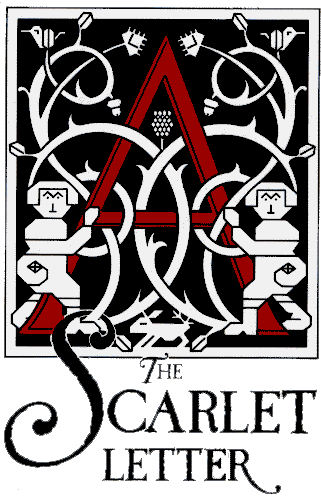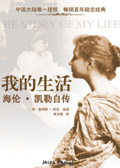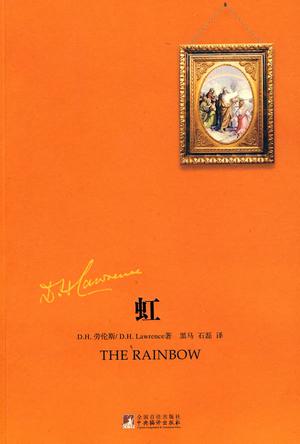the days of my life-第68章
按键盘上方向键 ← 或 → 可快速上下翻页,按键盘上的 Enter 键可回到本书目录页,按键盘上方向键 ↑ 可回到本页顶部!
————未阅读完?加入书签已便下次继续阅读!
Bosh! It is a rattling good story! But I am trying to read it as critically as I can; and I am rather fresh from saga…reading。 This makes me see more clearly than other people the immense difficulty in bining a saga with a story of love; which; except in the “Volsunga;” where the man was one of the foremost geniuses in the world; they never attempted。 Other people won’t read it like that; and it is not right that it should be read in that way。 Done in my way it would be rather pedantry than literature; but I am a born pedant。 It is chock full of things nobody else could have done: indeed nobody else could have done any of it。 The Saevuna part is excellent: I only doubted whether; for effect; her cursing speech should not be terser。 I never read the very end; as it had affected me quite enough before I came to that。 The scene on shipboard is not too like the Wanderer bit 'in “The World’s Desire” — H。 R。 H。'; because it is worked out and credible。 The cloak; however; would suffice and be all right; without the replacing of the bonds; which; under the cloak; would be needless。 The other bit; the seduction; is all right in itself: but it is one of the passages which the sages would have slurred; as not interesting to their bloodthirsty public。 I think it may be none the worse for what you have done to it。 Don’t “time heart” about it because of my pedantries。 It is because it is good that I want it to be best。 Skallagrim is always worth his weight in wadmal; whatever wadmal may be。 The death of Groa fetches me less; I don’t know why。 However; if you once don’t think well of it; in the nature of man it is certain to be more excellent; just as one always did well in examinations where one despaired。 It is a queer fact; but it is so。 The style is capital; but I rather think that of “Nada” is still better。 I hope I shall live to review it; or rather that I shall review it if I live。 For heaven’s sake; don’t be disgusted with it; or me because I look at it through a microscope。 If I didn’t my looking at it would be of little use。 None of my things are worth the lens; and the trouble; so I don’t。
Yours ever;
A。 Lang。
“Eric” came out in due course; and did well enough。 Indeed as a book it found; and still continues to find; a considerable body of readers。 My recollection is; however; that it was reviewed simply as a rather spirited and sanguinary tale。 Lang was quite right。 The gentlemen who dispense praise and blame to us poor authors have not; for the most part; made a study of the sagas or investigated the lands where these were enacted。 I wonder if it has ever occurred to the average reader how much the writer of a book which he looks at for an hour or two and throws aside must sometimes need to know; and what long months or years of preparation that knowledge has cost him? Probably not。 My extended experience of the average reader is that he thinks the author produces these little things in his leisure moments; say when he; the reader; would be smoking his cigarettes; and this without the slightest effort。
To return to “The World’s Desire。” This work also came out in due course; and was violently attacked: so I gather from Lang’s letters; for I have none of the reviews。 All that I remember about them is the effort of its assailants to discriminate between that part of the work which was written by Lang and that part which was written by myself — an effort; I may add; that invariably failed。 However; all these things have long gone by; and the book remains and — is read; by some with enthusiasm。
Here is another note from Lang from Scotland; headed Ravensheugh; Selkirk; Friday。
Stevenson says he is “thrilled and chilled” by Meriamun。 He thinks much of it “too steep;” bars Od(ysseus) killing so many enemies — exactly what Longinus says of Homer — and fears Meriamun is likely to play down Helen。 He is kind enough to say “the style is all right;” and adds a poem on Odysseus。 I’ll send you the letter presently。
I suppose that Lang did send this letter; and that I returned it to him。 I believe that subsequently he lost both the letter and the poem。 Luckily; however; I took the trouble to keep a copy of the latter; and here it is。
1。
Awdawcious Odyshes;
Your conduc’ is vicious;
Your tale is suspicious
???An’ queer。
Ye ancient sea…roamer;
Ye dour auld beach…ber;
Frae Haggard to Homer
???Ye veer。
2。
Sic veerin’ and steerin’!
What port are ye neerin’
As frae Egypt to Erin
???Ye gang?
Ye ancient auld blackguard;
Just see whaur ye’re staggered
From Homer to Haggard
???And Lang!
3。
In stunt and in strife
To gang seeking a wife —
At your time o’ life
???It was wrang。
An’ see! Fresh afflictions
Into Haggard’s descriptions
An’ the plagues o’ the Egyptians
???Ye sprang!
4。
The folk ye’re now in wi’
Are ill to begin wi’
Or to risk a hale skin wi’
???In breeks —
They’re blacker and hetter —
(Just ask your begetter)
And far frae bein’ better
???Than Greeks。
5。
Ther’s your Meriamun:
She’ll mebbe can gammon
That auld…furrand salmon
???Yoursel’;
An’ Moses and Aaron
Will gie ye your fairin’
Wi’ fire an’ het airn
???In Hell。
I refuse to continue longer。 I had an excellent half…verse there; but couldn’t get the necessary pendant; and anyway there’s no end to such truck。
Yours;
R。 L。 S。
Now I will turn to my modern novel; “Beatrice。” Oddly enough; Lang liked it; although he says somewhere that he “infinitely prefers” Umslopogaas and Skallagrim。
I have read your chapters of “Beatrice。” Sursum corda: it moves; it has go and plenty of it。 。 。 。 I fear it is a deal more popular line than “The World’s Desire。”
May 8th。
I have read “Beatrice;” and if she interests the public as much as she does me; she’ll do。 But I have marked it a good deal; and would be glad to go through it with you; looking over the scribbled suggestions。 It is too late; but what a good character some male Elizabeth would have been: nosing for dirt; scandal; spite and lies。 He might easily have been worked in; I think。 。 。 。 They 'i。e。 the hero and heroine' are a good deal more in love than Odysseus; Laertes’ son; and Mrs。 Menelaus! It is odd: usually you “reflect” too much; and yet in this tale; I think; a few extra reflections might have been in place。 I feel a Thackerayan desire to moralise。
Here is another allusion。
A letter I wrote anent B。 was never posted。 I said I did not quite think Geoffrey gave the sense of power; etc。; and that his rudeness to B。 was overdone and cubbish; which you notice yourself。 I think; in volume shape; that might yet be amended。
Miss Marie Corelli writes on June 12; 1890:
If you are still in town; and you would favour me with a call on Sunday afternoon next; about five o’clock; I should be so pleased to reneonths past; when your kindly words made me feel more happy and encouraged me in my uphill clamber! I saw you from the gallery at the Literary Fund Dinner; and wished I had had the chance of speaking to you。 Your book “Beatrice” is beautiful — full of poetry and deep thought — but I don’t believe the public — that with obstinate pertinacity look to you for a continuation ad infinitum of “King Solomon’s Mines” and “She” — will appreciate it as they ought and as it deserves。 Whenever I see a World and Pall Mall Gazette vulgarly sneering at a work of literature; I conclude that it must be good — exceptionally so! — and this is generally a correct estimate: it certainly was so concerning “Beatrice。”
Trusting you will e and see me (we are very quiet people and don’t give crushes!);
Believe me;
Very sincerely yours;
Marie Corelli。
Here is a letter from the late Lady Florence Dixie; whom I first met years before in South Africa; which is interesting as showing that in the year 1890 she held views that since then have bee very mon。 In short; she was a proto…suffragette。
You will; I hope; excuse this letter; and not misunderstand me in what I say。 I have just finished reading your “Beatrice;” and have put it down with a feeling that it is only another book in the many which proclaims the rooted idea in men’s minds that women are born to suffer and work for men; to hide all their natural gifts that man may rule a





